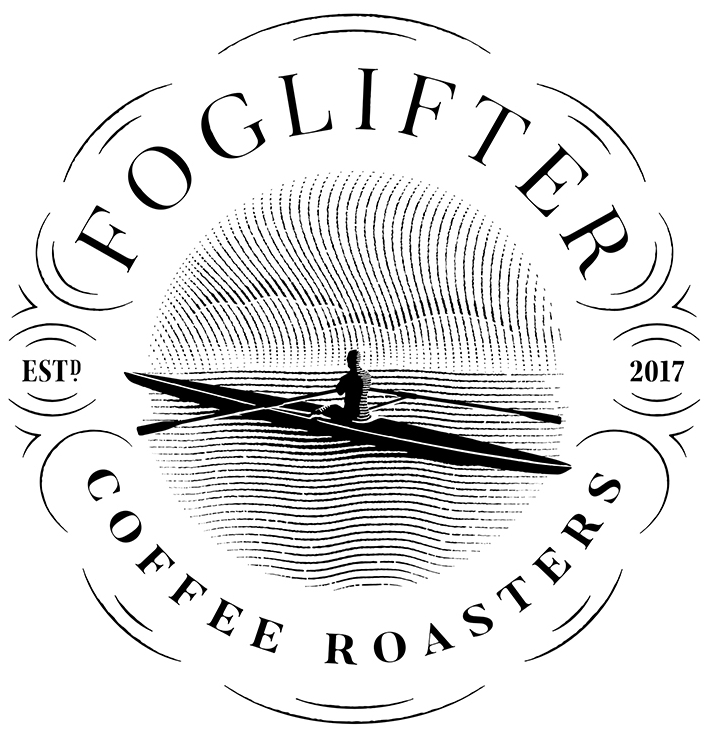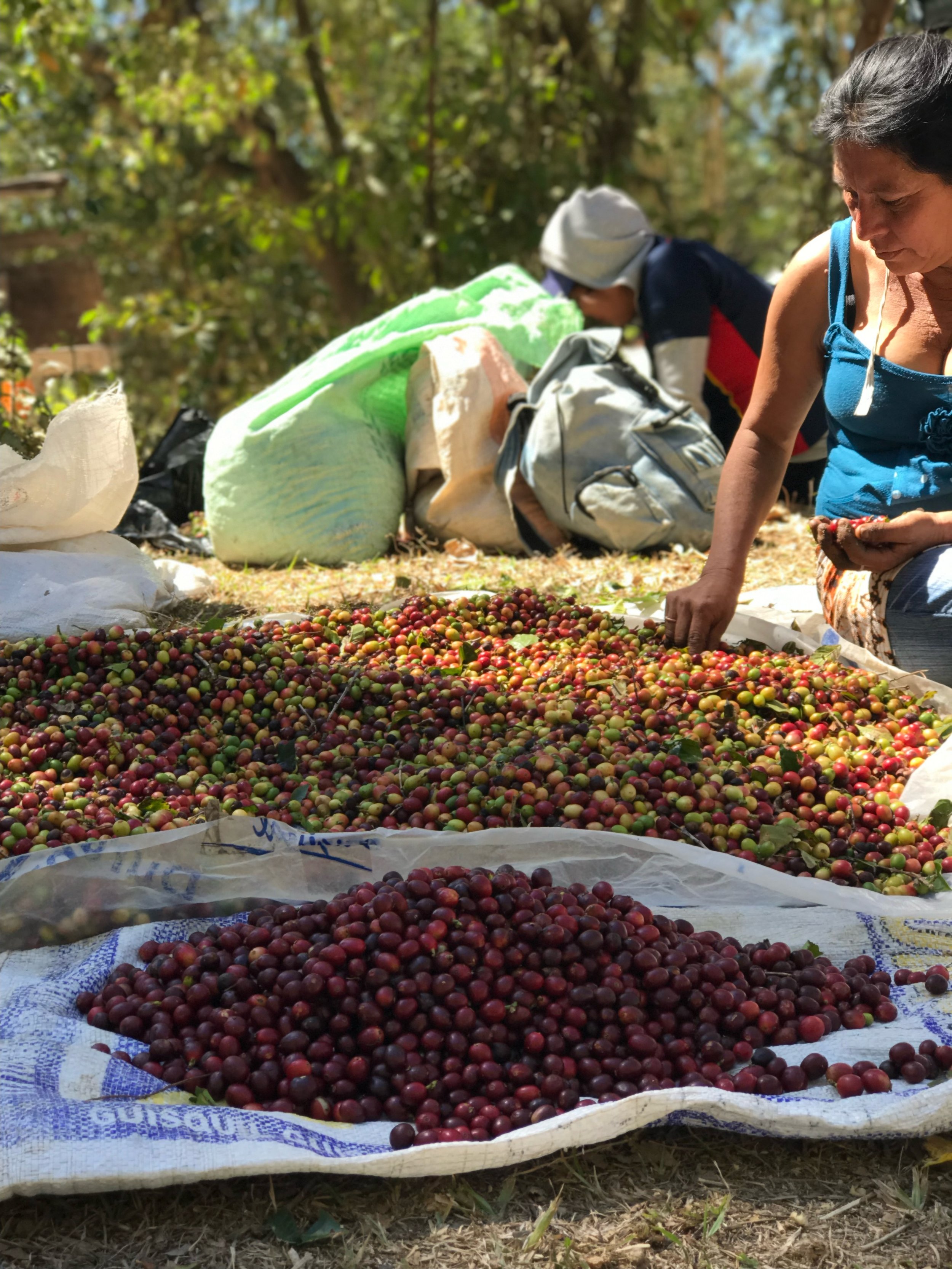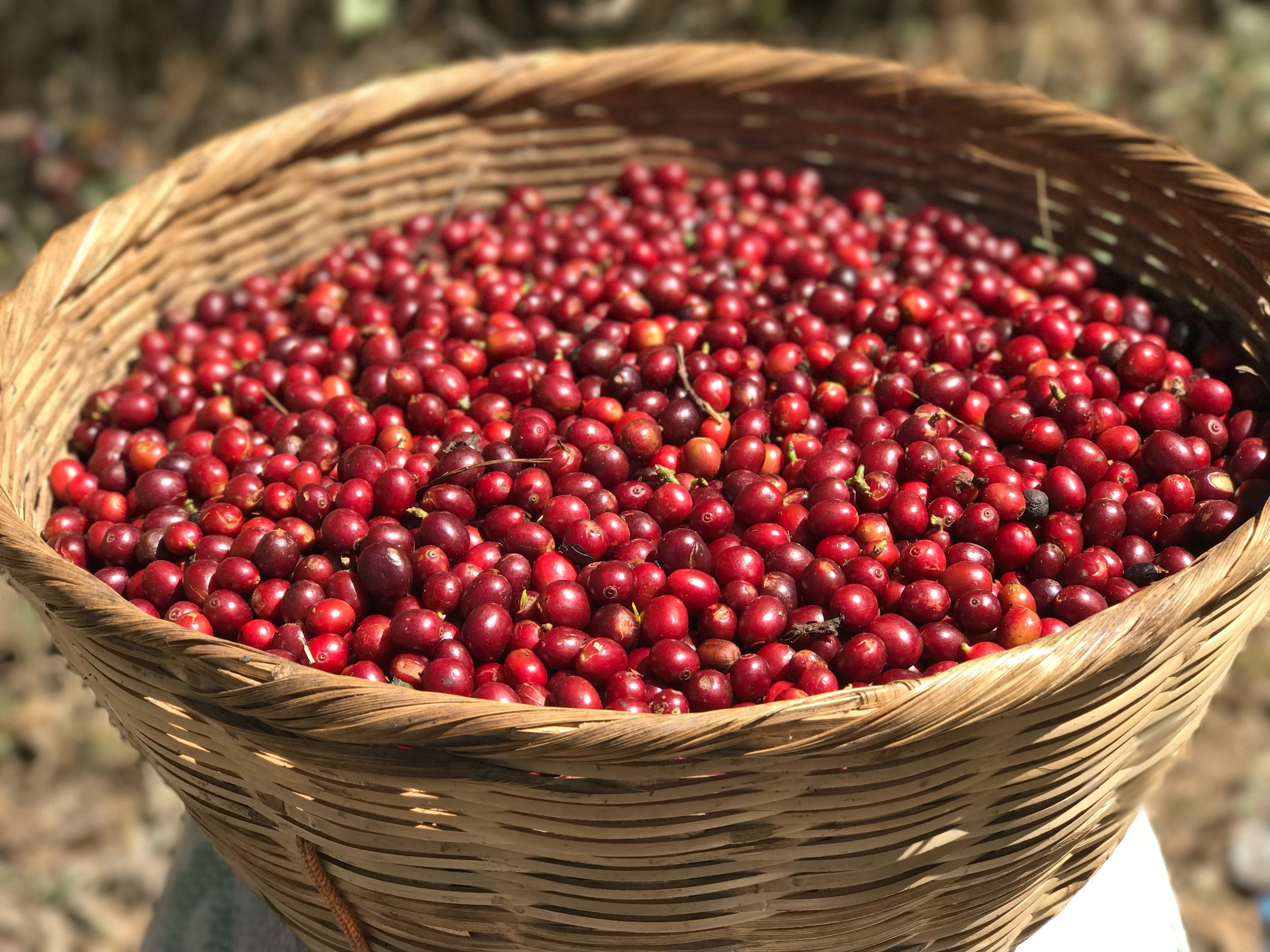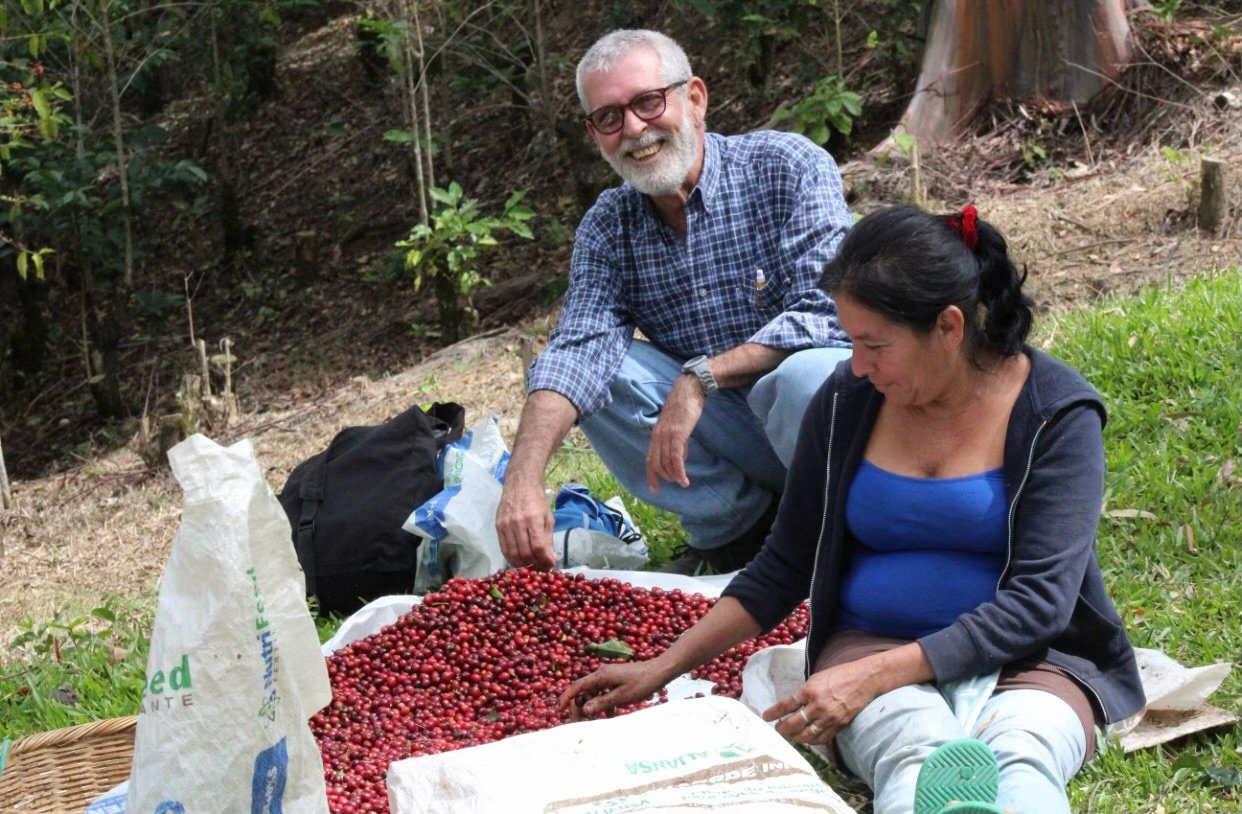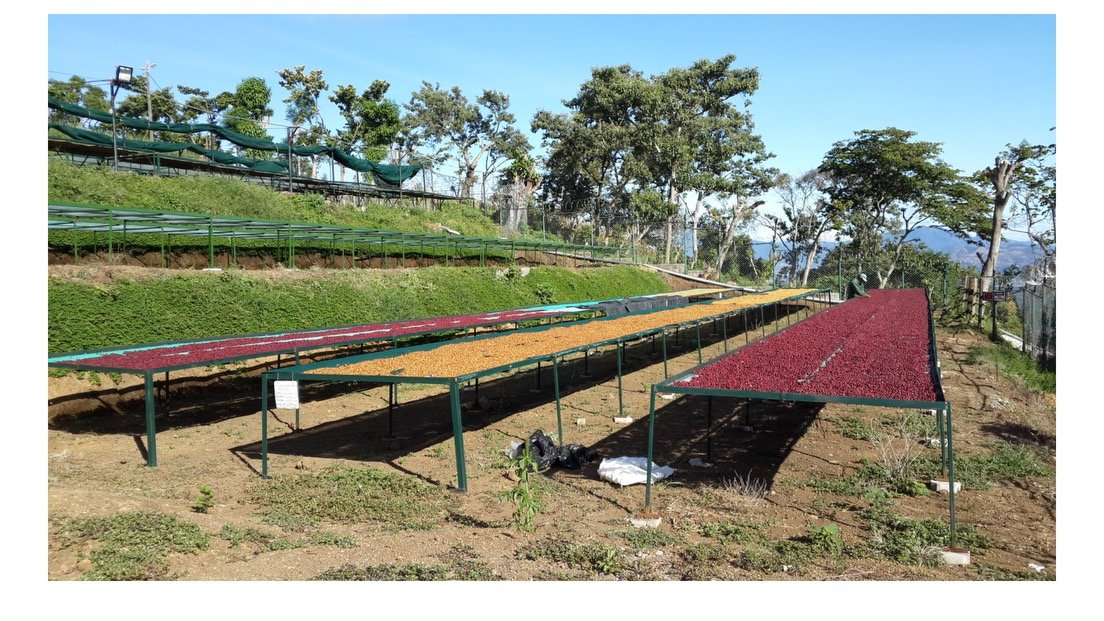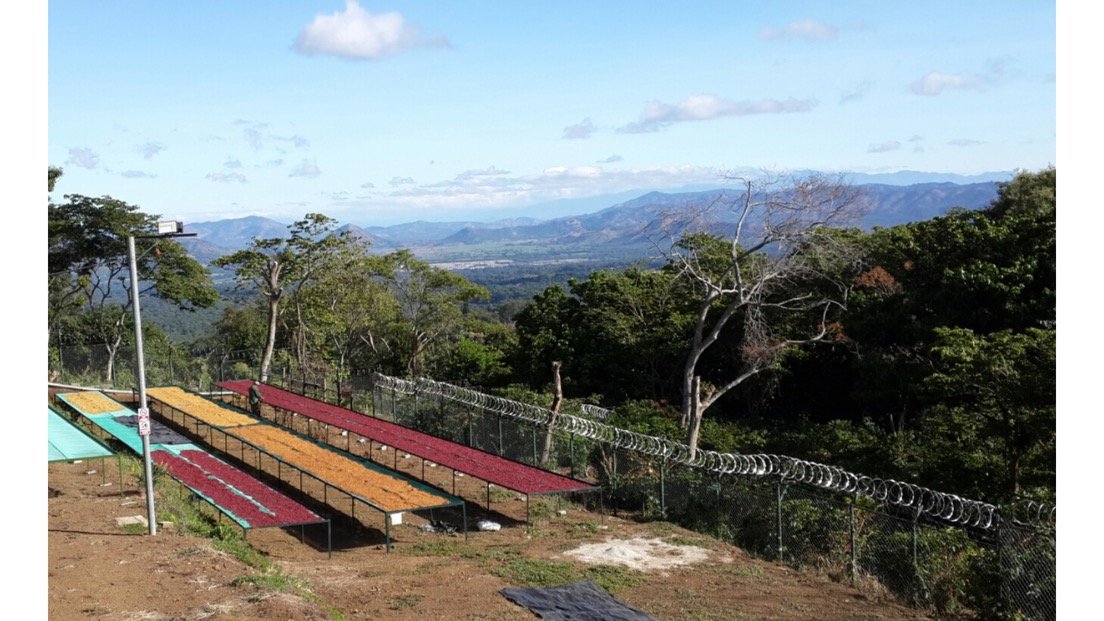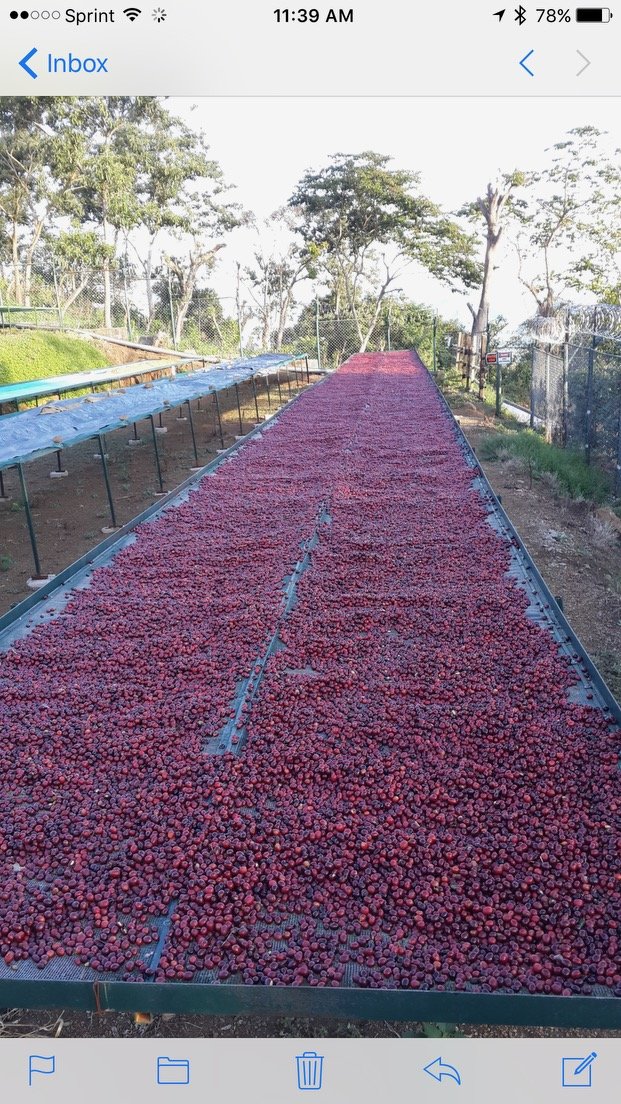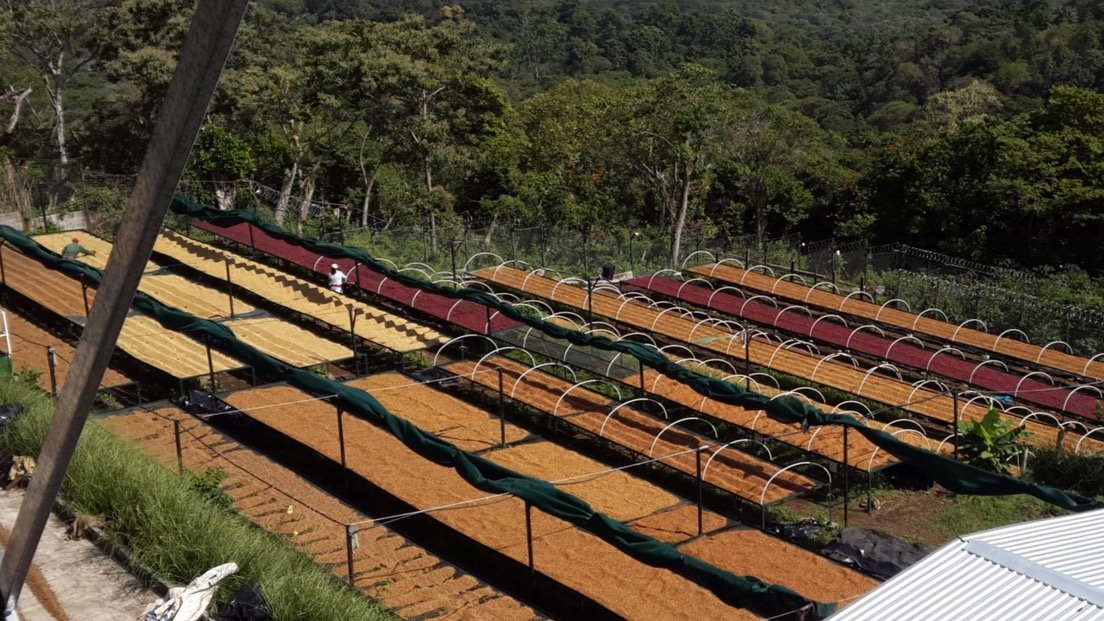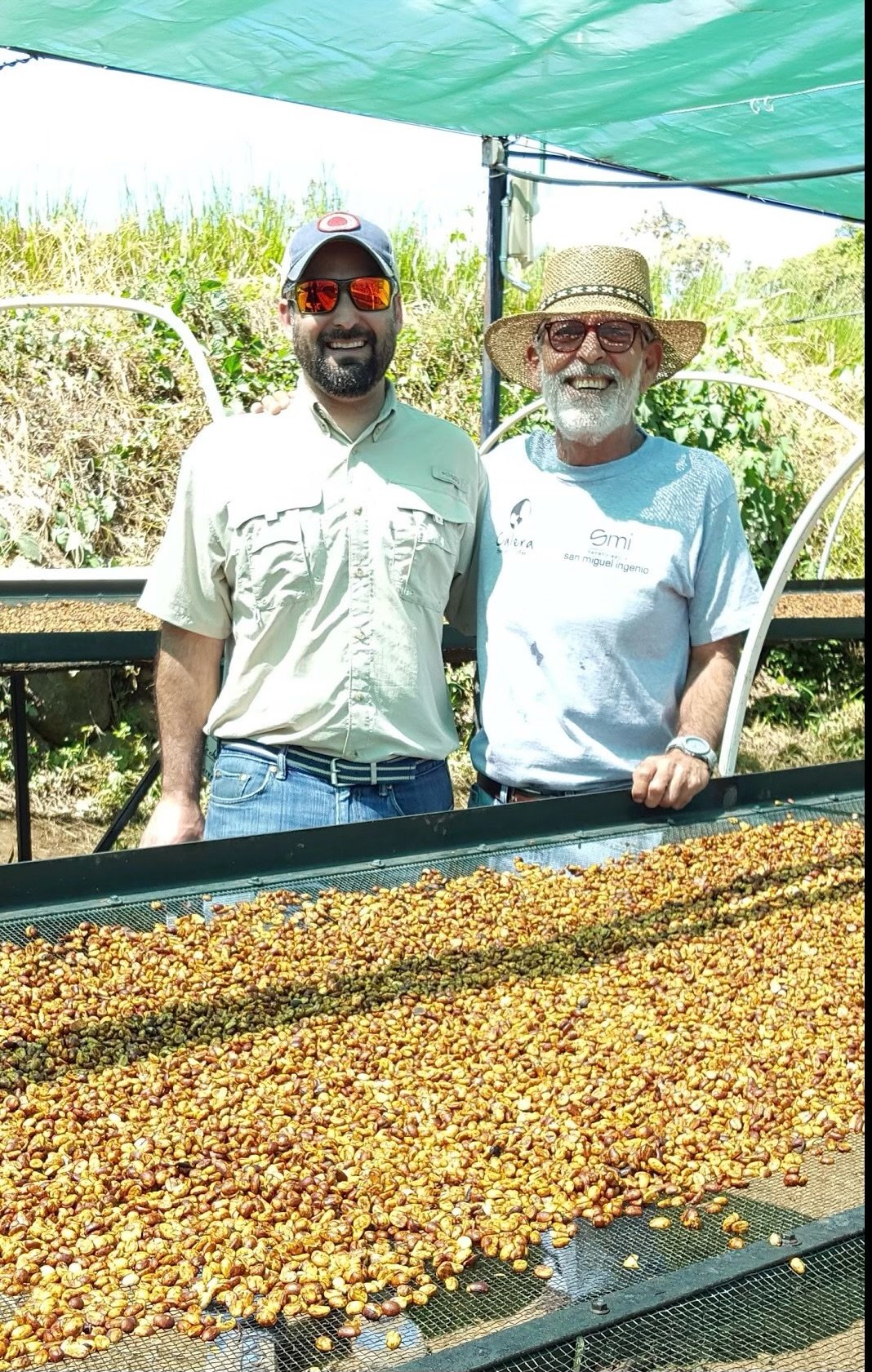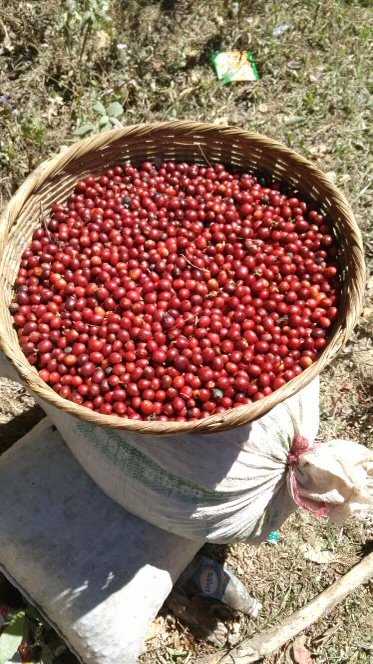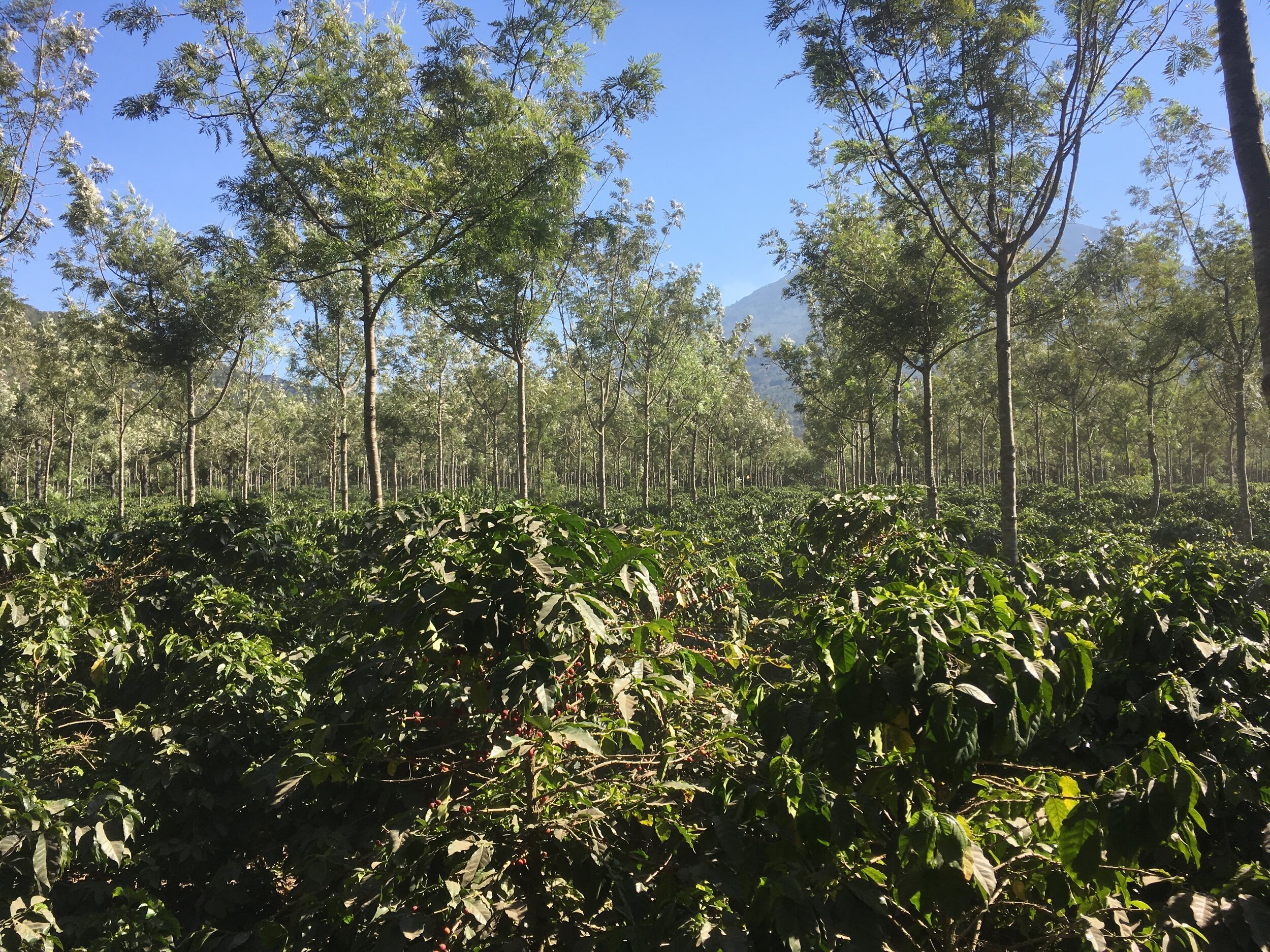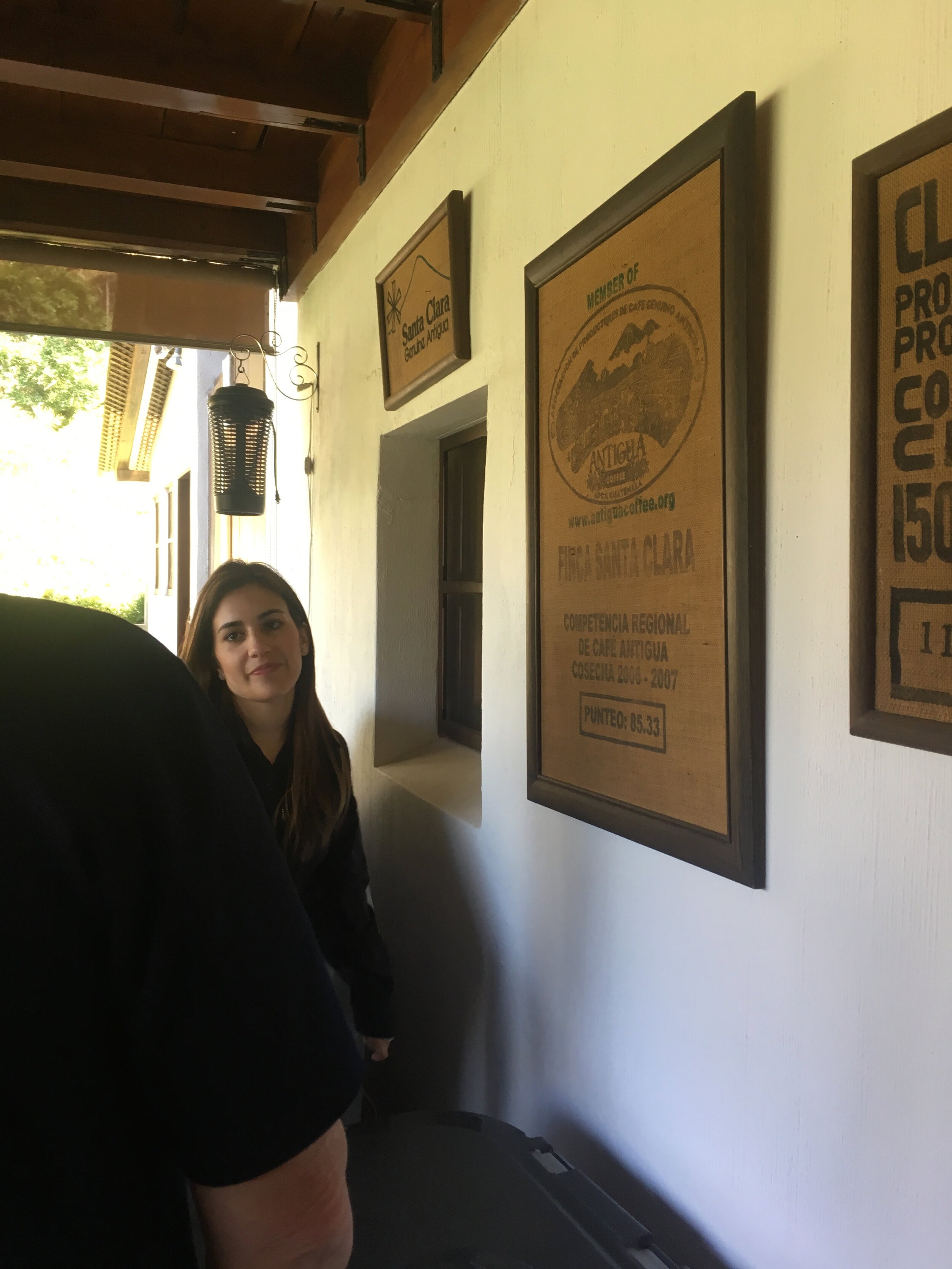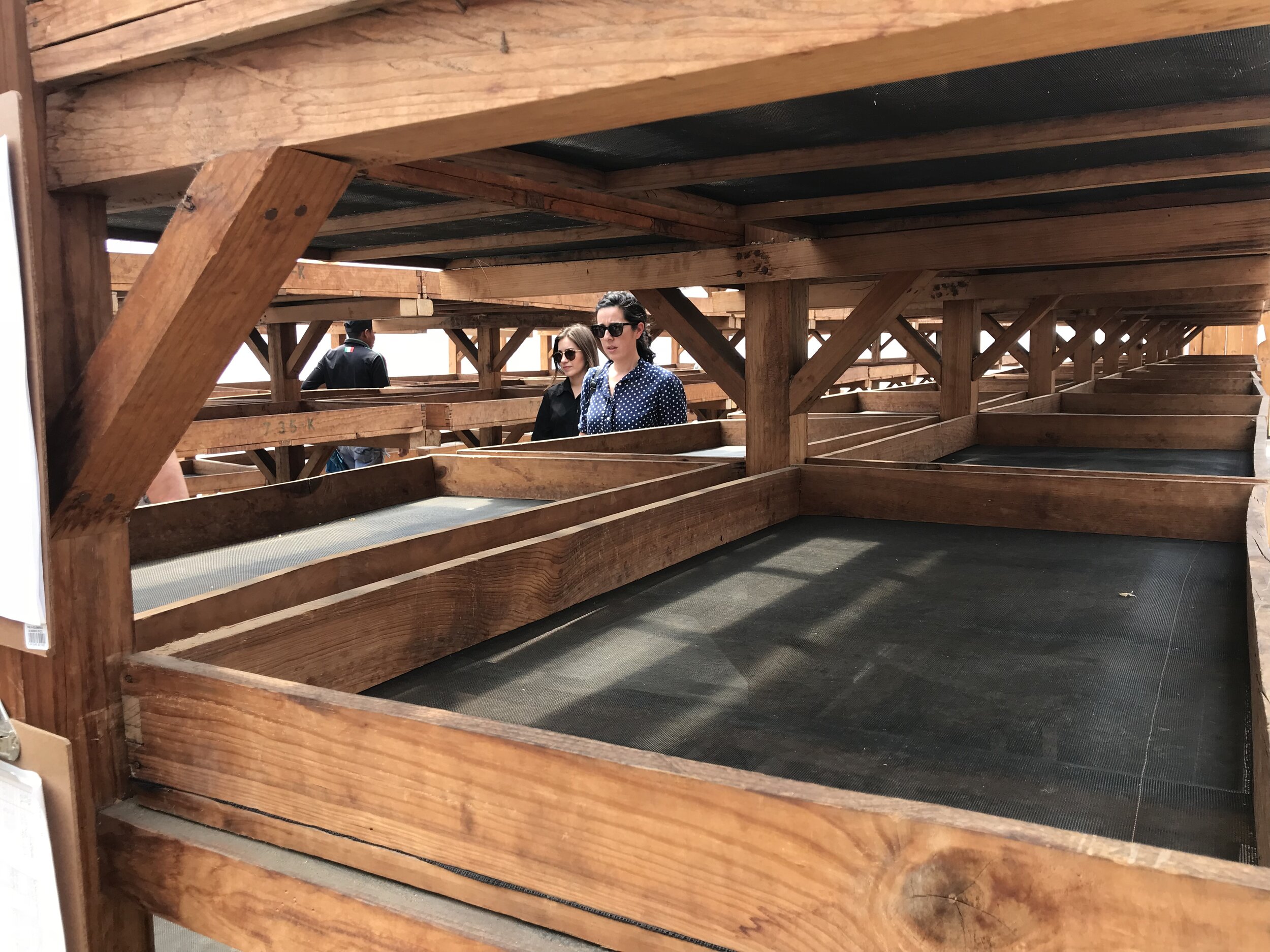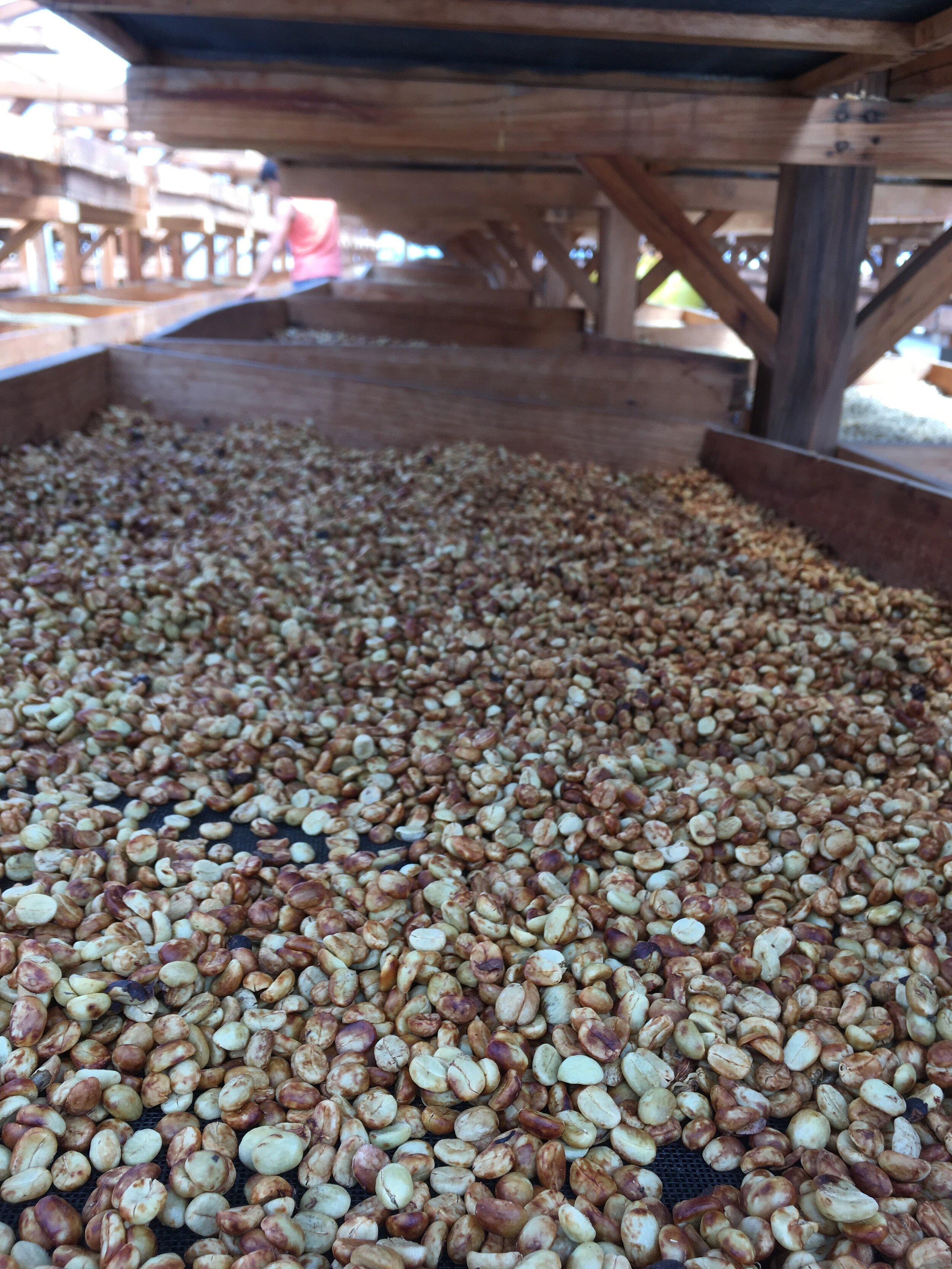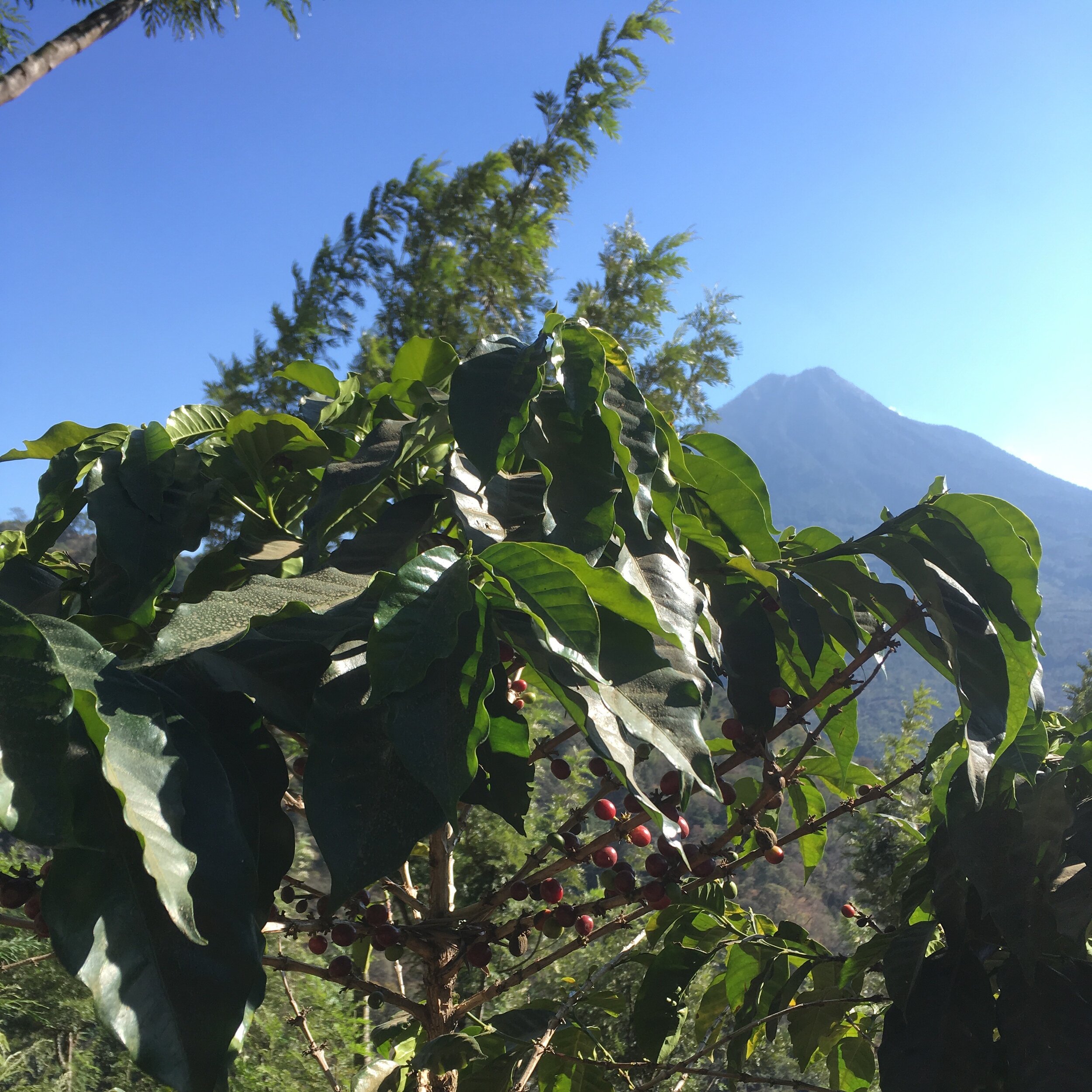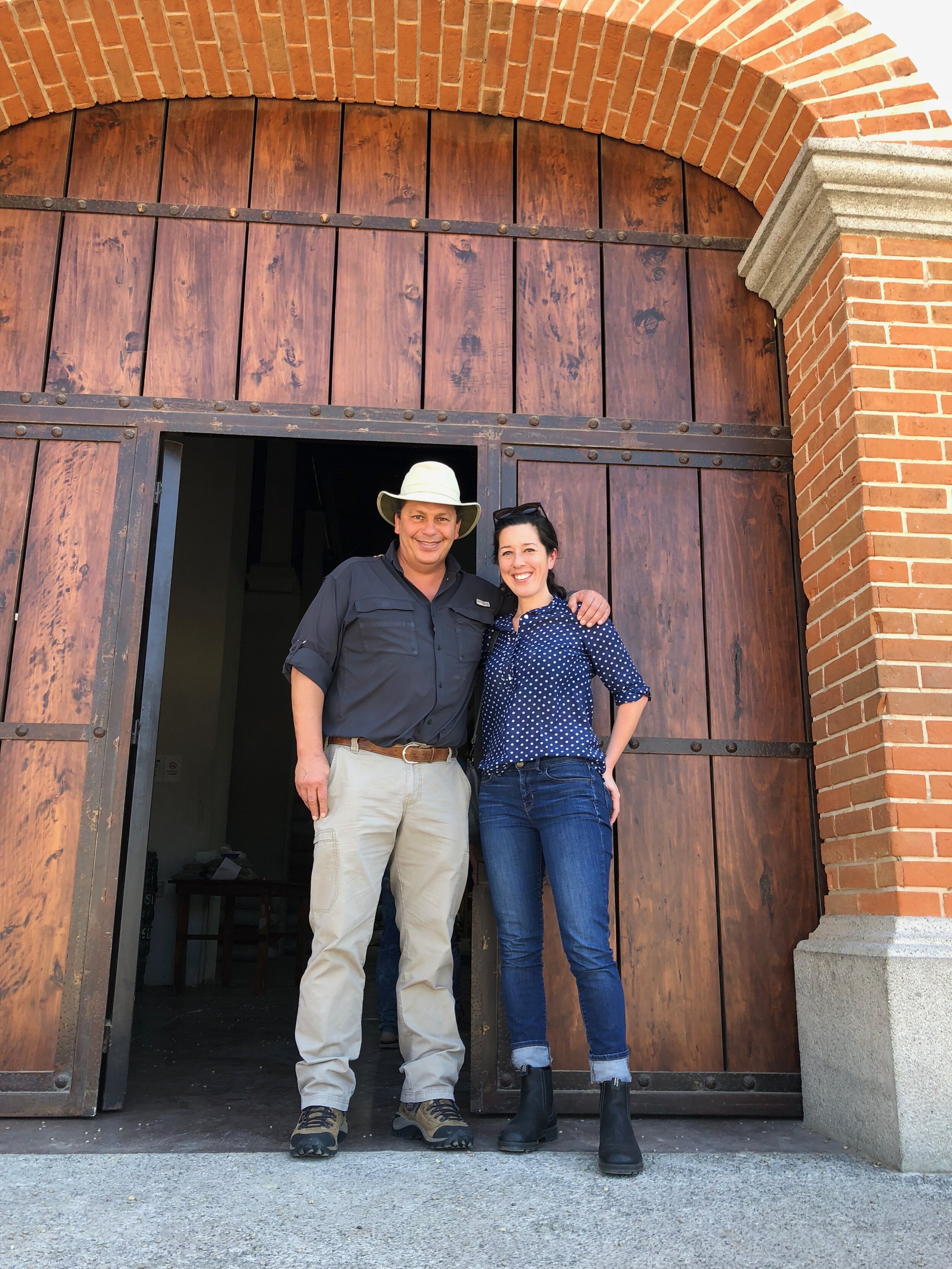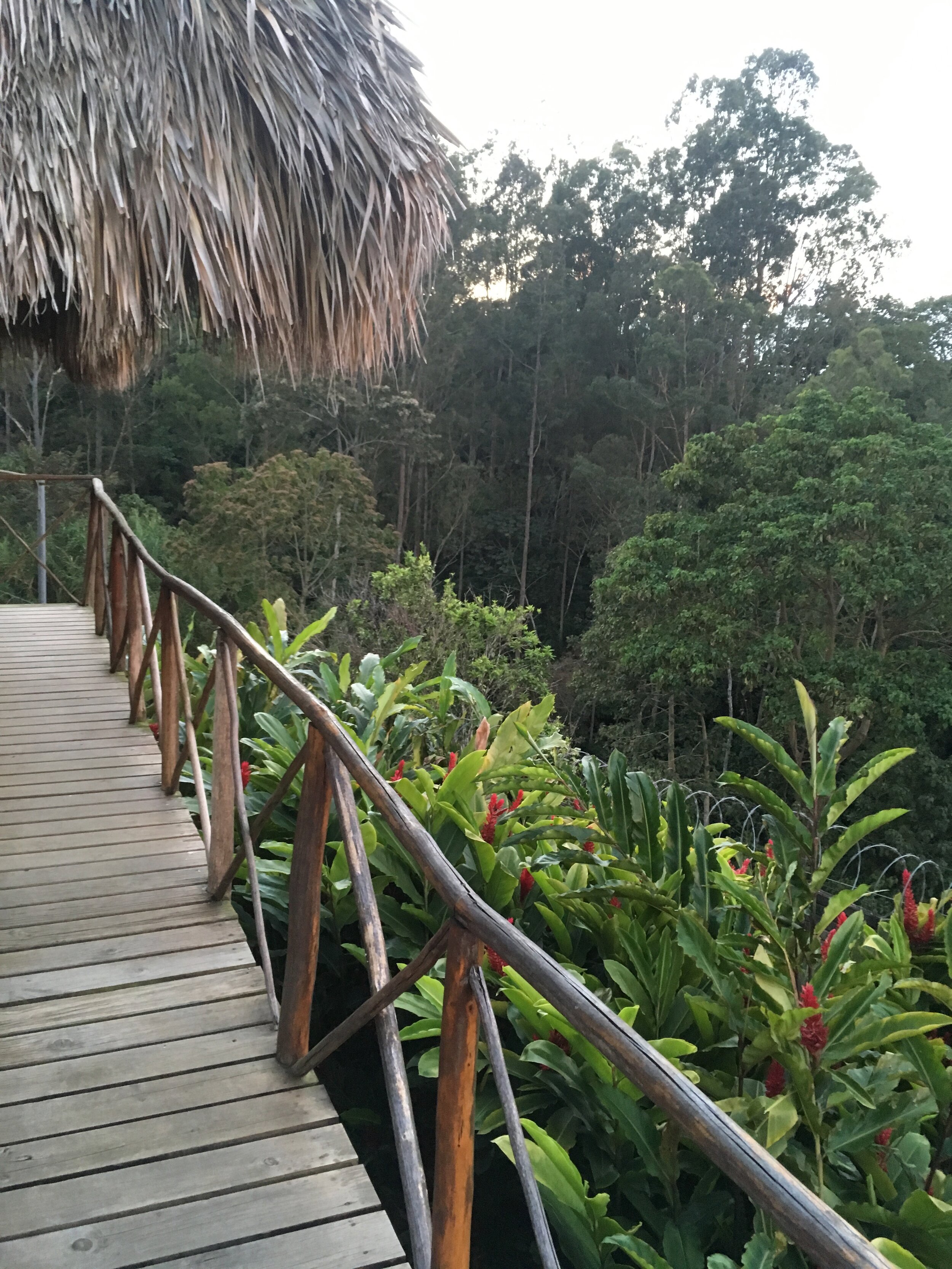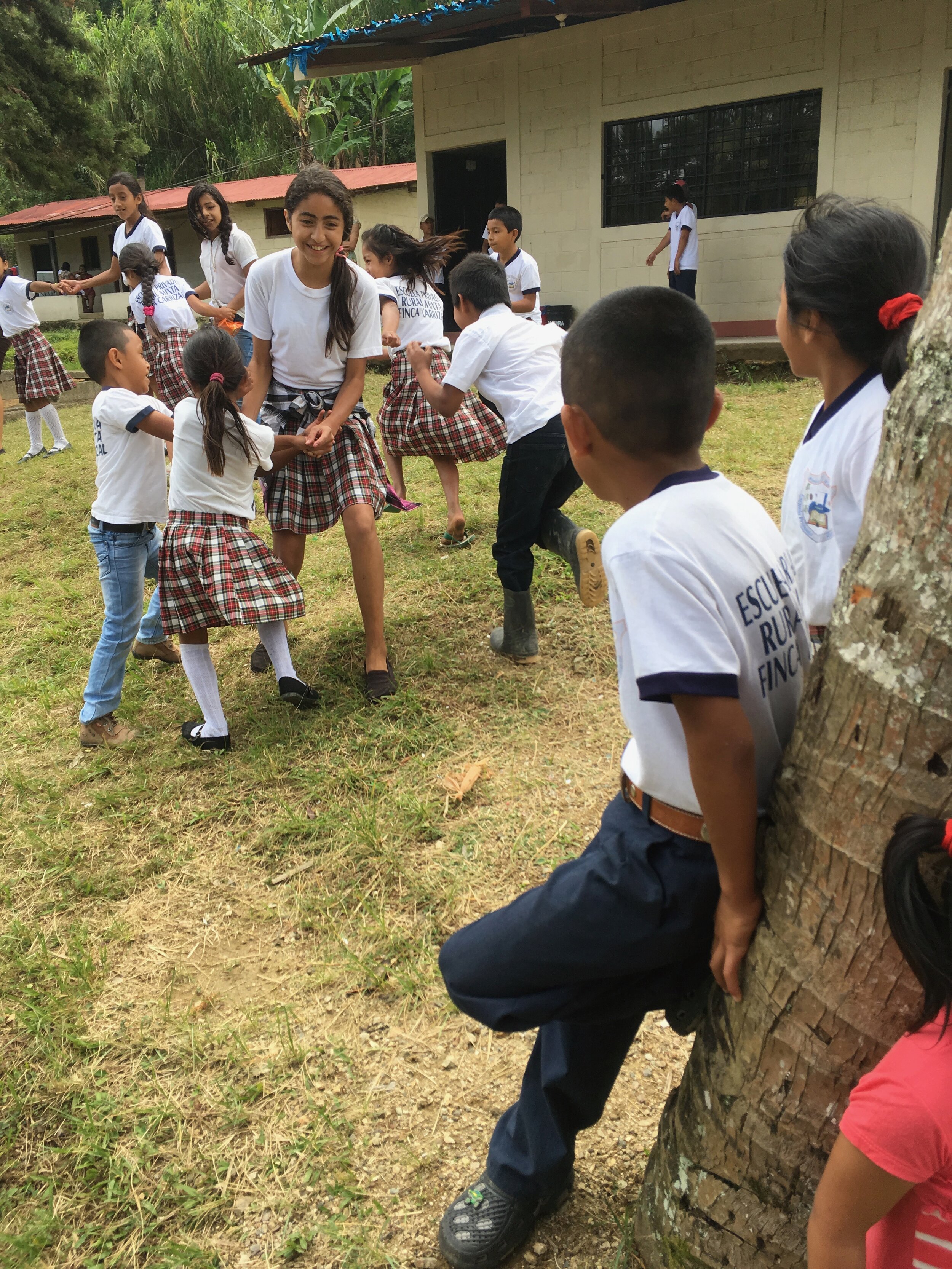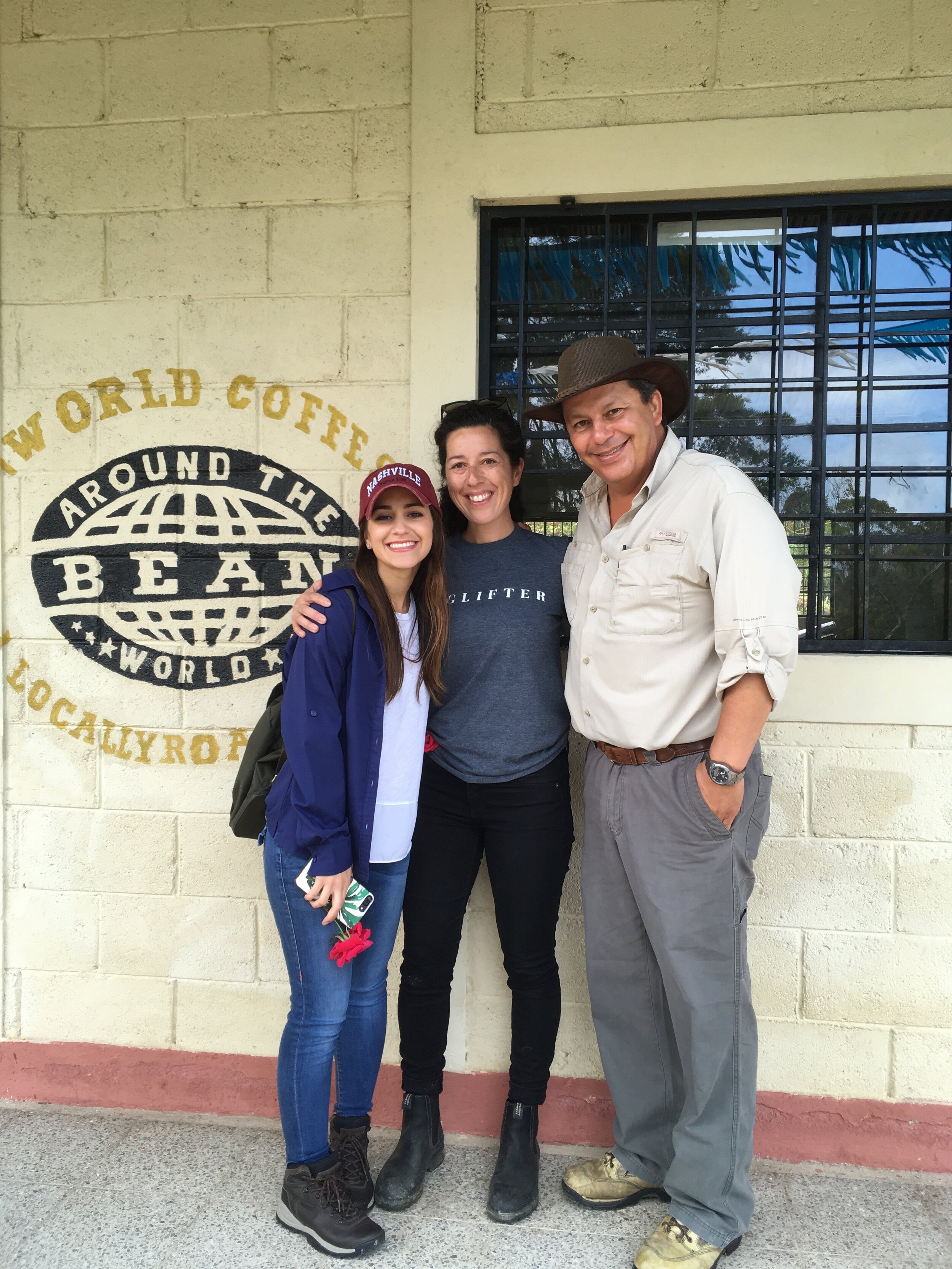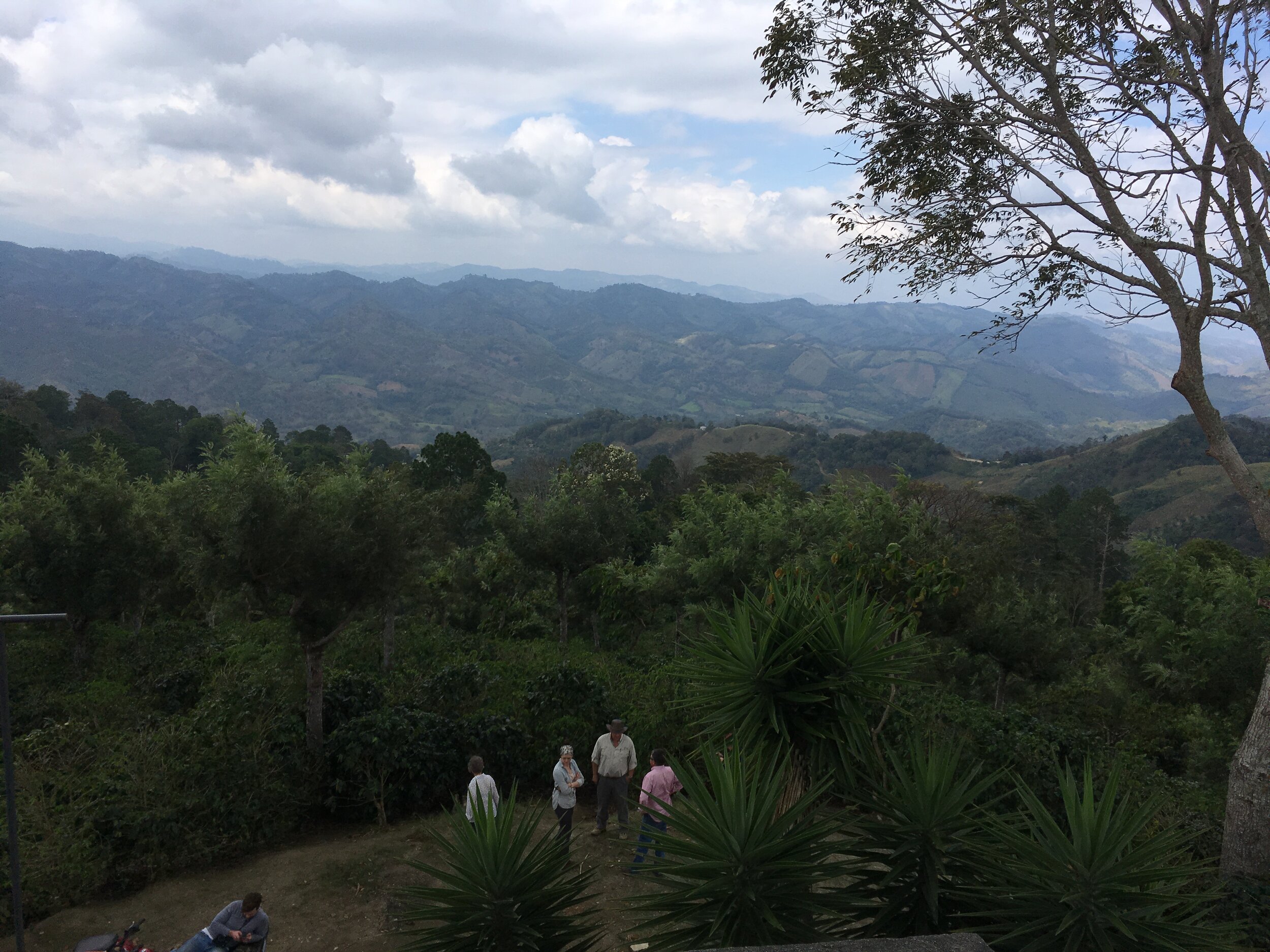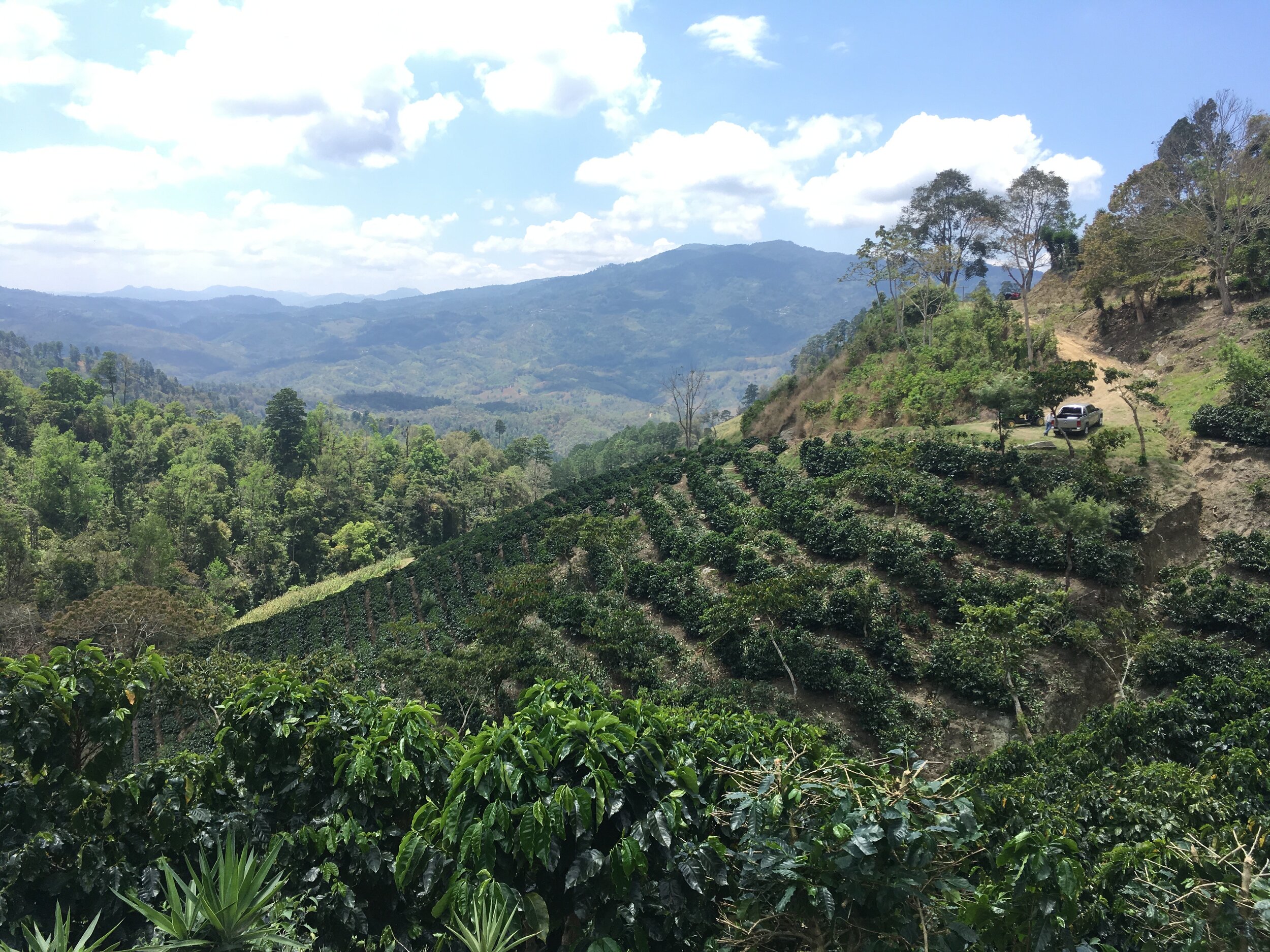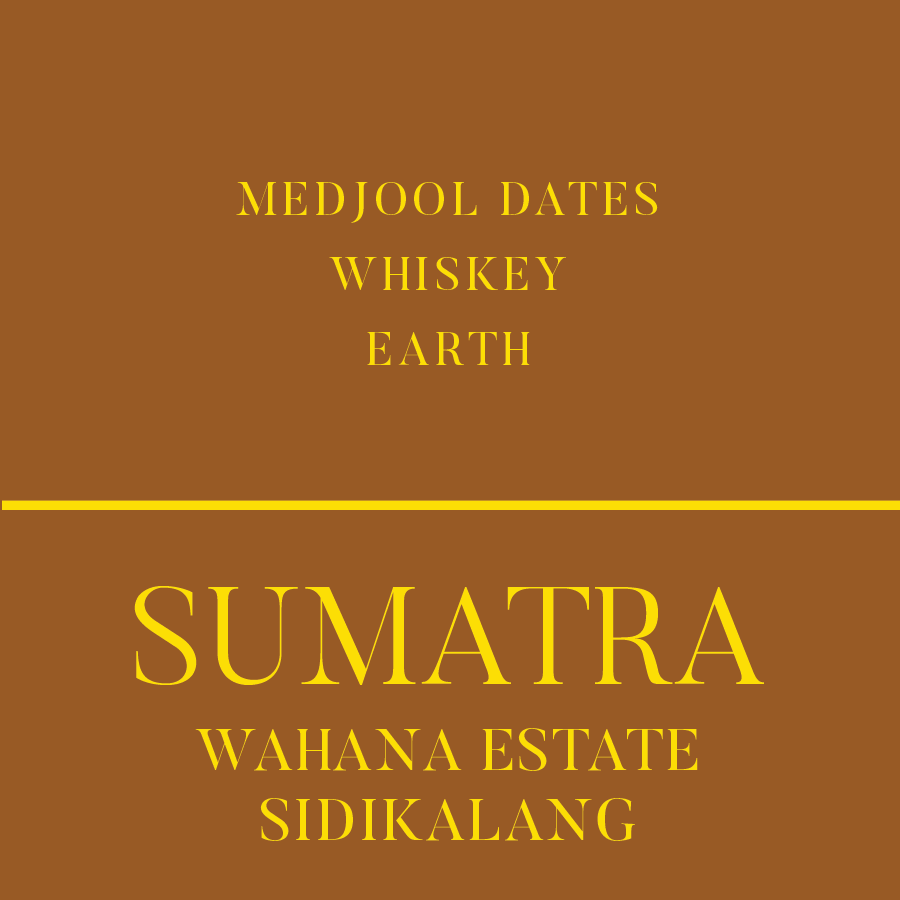Foglifter's Current Single Origin Offerings
We work closely with our coffee importers to carry the coffees we love produced by farmers and co-operatives who care. After decades in the business and on the ground around the world, Emeryville-based Royal Coffee, Vancouver-based Common Goal Coffee, and Canadian importers, Semilla have cultivated these relationships and are pleased to pass along the knowledge they've earned. We are delighted to share these details with you.
Click on any coffee to read more about the folks who produce it.
Ethiopia Yirgacheffe Worka Chelbessa
SMALLHOLDER PRODUCERS
RED BERRIES - ORANGE ZEST - BLOSSOM
Medium Roast
The community of Worka Chelbessa is located in Gedeb, in the southernmost part of the Gedeo region. Over the past decade, Worka Chelbessa has gained recognition for producing exceptional coffees. This reputation attracted coffee producer Neguesse Debela, who chose this area as one of his first investment locations when he began his coffee venture a few years ago.
In 2017, Neguesse established his first site in Worka Chelbessa. By 2019, he expanded his operations by acquiring another washing station a few kilometers away in a sub-area of Worka Chelbessa called Danche. At these two sites, Neguesse and his team excel in producing immaculate washed and natural processed coffees. They also create unique experimental lots to continually enhance their coffee quality.
Yirgacheffe gained fame for introducing washed coffee to Ethiopia decades ago. Coffee enthusiasts fell in love with the floral and citrus profiles that the washing process highlighted in Yirgacheffe's coffees, quickly establishing this small town as a coffee hub.
Growers: Smallholder producers from the community of Worka Chelbessa
Region: Gedeb, Gedeo Zone, Ethiopia
Altitude: 1,900 - 2,200 meters
Variety: JARC varieties and local landraces
Process: Full natural
Guatemala Huehuetenango Finca La Severa
FAMILY-OWNED SINGLE FARM ESTATE
MILK CHOCOLATE - PAPAYA - BROWN SUGAR
Medium Roast
Guatemala Huehuetenango Finca La Severa is sourced from a family-owned estate located within the municipality of Santa Cruz Barillas, in the department of Huehuetenango, Guatemala. Finca La Severa was established by Dr. Carlos Roberto Serrano Roa in 1969 and named after his mother Severa. Over the last three decades, Dr. Serrano and his family have developed 111 acres of the 135 acre estate for coffee cultivation. The remaining areas has been preserved as natural forest with pristine water that is used for processing coffee.
Finca La Severa has its own mill where cherry selection, depulping, fermentation and drying are meticulously executed. Waste water is treated before it is returned to the environment and coffee pulp is converted into organic fertilizer and returned to the coffee plants. With an eye toward enriching and supporting their community, great care is taken to provide housing, healthcare, education and social activities to those who work at the estate. The remoteness of the Finca La Severa makes these essential amenities an important part of ensuring a dignified quality of life at the estate.
Growers: Carlos Roberto Serrano Roa and family
Region: Santa Cruz Barrillas, Huehuetenango, Guatemala
Altitude: 1,459 meters
Variety: Anacafe 14, Caturra, Pache, and Sarchimor
Harvest: May - September
Process: Fully washed and sun dried
Bolivia Cooperativa San Juan Fair Trade Organic
FAIR TRADE - ORGANIC - COOPERATIVE-PRODUCED COFFEE
SWEET APPLE - HONEY - HERSHEY’S ALMOND BAR
Medium Roast
Cooperativa Agrícola Cafetalera San Juan (San Juan) was formed in 1974 with 40 farmer members across Caranaví, united in the goal of supporting small family farms and organic, chemical-free methods. The cooperative started out strong; by the mid-2000s Bolivia was hosting annual Cup of Excellence competitions and there was a high level of international development interest in the Yungas coffee sector, of which Caranaví is the center.
However, productivity declined tremendously from 2006-2017 among cooperative members due to aging trees and falling investment. That year, Felix Chambi Garcia joined the organization, bringing with him over 16 years of specialty experience as a cupper and member of various other Bolivian cooperatives. Since then, the coop’s total production, overall quality, and diversity of coffees has all increased significantly. Felix sees himself as part of the younger, renewed generation of coffee lovers in Bolivia—including baristas and roasters—who are fortunate to be in a producing country with such high potential. This generation certainly believes there is a lot of ground to be covered.
San Juan relies on individual farmers to process their own coffee. Felix has made quality control central to the coop’s operations, and his lab in Alto Cochabamba serves as the central control point for all lot building and exportation. Parchment lots that don’t make the minimum requirement are sold domestically, rather than marketed abroad. Harvesting goes according to a common protocol as well: coffee cherry is picked exclusively ripe, floated to sort by density, depulped on small mechanical depulpers, and fermented 18-24 hours. Once fermentation is complete the parchment is washed clean in narrow basins and sundried on raised screen beds. The cooperative is working toward installing mechanical demucilagers to better calibrate the pulping and fermentation of the various members.
Bolivia is South America's only landlocked coffee producing country and is the smallest exporter of coffee on the continent. Bolivia’s terrain and geography is perfect for arabica production, particularly throughout its greater Yungas region (Yungas is Aymara for "warm lands"), whose mountain ranges connect the low and humid Amazonian basin to the dry Andean altiplano above.
The most productive municipality in the Yungas is by far Caranaví, where 85-90% of Bolivia's specialty coffee has continued to thrive over the decades. Caranaví's landscape is steep, cloudy, rugged, and remote, with natural forest making up more than 90% of the territory. Coffee farms in this high and tropical climate tend to be well-managed but small, challenged by isolation and lacking in long-term industry support. Bolivian growers still often don’t have processing equipment or transportation of their own, a massive hurdle in such territory.
Biodiversity, soil health, elevation, and progressive leadership in San Juan all work undeniably in favour of small farmers seeking sustainable livelihoods with coffee. Yet, facing each and every Bolivian coffee, especially the best ones, is one of the most strenuous overland transits in the coffee world, passing elevations of 4000 meters over the top of the Andes and west to the port of Arica on Chile’s coast. The country’s low production, select few producer groups in the specialty game, and formidable logistical challenges, means each successful arrival is something to be cherished.
Growers: 33 farms organized around Cooperativa Agricola Cafetalera San Juan
Region: Caranaví, La Paz, Bolivia
Altitude: 1,500 meters
Variety: Typica, Caturra, and Catuai
Harvest: May - September
Process: Fully washed and sun dried
Certification: Fair Trade, Organic
Mexico Chiapas Mayan Harvest Women's Group
WOMEN’S COOPERATIVE OF SMALLHOLDER PRODUCERS - FULLY TRACEABLE
POMELO - PECAN - CREAM
Medium Roast
Mexico Chiapas Mayan Harvest Women's Group is sourced from 168 family-owned farms located in communities within the municipality of Bella Vista in the state of Chiapas, Mexico.
Rosalba Cifuentes Tovia, who was raised in the Bella Vista coffee community, has dedicated herself to helping producers with small plots of land (averaging 5 acres) earn a better price for their coffee.
Rosalba ensures traceability for her community’s coffee by personally exporting the coffee directly to the Bay Area. Rosalba also concerns herself with the small details like being sure to pull samples without piercing the producers' bags, which has eliminated the cost of replacing damaged bags. These efforts allow producers to earn higher prices, reinvest in better agricultural practices, and improve the livelihoods of their families.
Overall, these strategic, logistical, and quality improvements serve to lift the value of their coffee and result in better access to specialty markets and increasing financial independence for the women in Mayan Harvest Group.
Growers: 168 women coffee producers associated with Rosalba Cifuentes
Region: La rinconada, El progreso, Unión progreso, Barrio montaña and Bella Vista, Chiapas
Altitude: 1,550 - 1,650 meters
Variety: Bourbon, Caturra, and Catimor
Soil: Clay minerals
El Salvador Finca Colomba Natural Process
SINGLE FARM LOT - FAMILY-OWNED FARM
TART RASPBERRY - SHORTBREAD - LIME ZEST - COCOA
Medium Roast
Finca Colomba has been in the Adolfo family for 3 generations. In 1949, Adolfo McEntee inherited two properties from his family in the Cordillera de Llamatepec, on the slopes of the Santa Ana Volcano. At this time, Don Adolfo began planting Bourbon coffee trees at Finca Colomba and Finca San Francisco. Don Adolfo’s son, José Adolfo McEntee Batlle inherited the farms and continued the legacy before passing down to his son “Fofo”.
After being kidnapped twice during the country’s civil war, José Adolfo emigrated to Miami with family and left the management of the farm to Mario Valiente, owner of Finca Calera. In 2014, Mario Valiente built Colomba’s dry mill ensuring the farm has direct control over every step of the process from farm to export. Great care is taken preparing each coffee for export, with ten women, who are heads of their households, overseeing the final quality check through manual sorting.
The farm permanently employs 80 people and up to 210 people from nearby towns during the picking season. Aware of the need in the surrounding communities, Finca Colomba supports schools in the area, hosts medical conferences to provide accessible healthcare, and distributes toys to children during the Christmas season.
Growers: Mario Valiente and José “Fofo” Adolfo
Region: Chalchuapa, Santa Ana Departement, El Salvador
Altitude: 1,500 meters
Variety: Bourbon
Process: Natural
Decaf Rwanda Nyampinga Women's Coffee Project
WOMEN’S COOPERATIVE - SUSTAINABLE GROWERS PROGRAM - SWISS WATER DECAF
PLUM - SHORTBREAD - LIME ZEST - COCOA
Decaffeinated Medium Roast
“Nyampinga” means “beautiful women, both inside and out.”
This coffee came through the relationship between Swiss Water and Sustainable Harvest, whose Women’s Coffee Sourcing Program seeks to elevate women’s unequal status in coffee production through coffee skills education, advocacy, leadership development, and concrete incentives to improve quality and meet their goals. Nyampinga is also part of the Sustainable Growers program, which provides training in agronomy, market access, and quality control. These programs have contributed to increases in cup scores and market value for the hard-working women of Nyampinga, and have increased the economic opportunities for these women and their families.
The 238-member cooperative also operates its own washing station, where coffee is carefully depulped, fermented, washed, and dried on African raised beds. Hand-sorting is done at each step to ensure top quality—and the results have paid off in the cup.
Growers: Nyampinga Cooperative
Region: Rusenge Sector, Nyaruguru District, Rwanda
Altitude: 1,760 meters
Variety: Bourbon
Process: Washed, Swiss Water decaffeination
Ricardo Zelaya Santa Clara Honey Process
PRODUCER DIRECT COFFEE - SANTA CLARA SCHOLARSHIP PROGRAM
CHERRY - DUTCHED COCOA - MARZIPAN
Medium Roast
We first came across Ricardo's coffee in 2007 through our previous shop, Bean Around The World - Main & 20th. It is a privilege to keep this relationship thriving today. This particular coffee was selected with Katia Zelaya's assistance during our trip to Antigua and Finca Carrizal in 2018 and it’s been a customer favourite each season since then. Read more about our visit and your contributions to their Santa Clara Scholarship Program - an ambitious, evolving program that is creating transformative opportunities for the people who produce this coffee.
This coffee is sourced from Finca Santa Clara, the Zelaya estate farm established in 1930 in Antigua where meticulous rows of shade-grown coffee plants work their way up the mountainside to an altitude of 1800 masl., offering pristine growing conditions for a range of varieties as well as breathtaking views of the city and its surrounding volcanos.
The honey process of allowing the washed coffee to ferment and dry with its sticky, sugary mucilage intact imbues the beans with warmth and deep sweetness while maintaining a pleasant acidity and clean mouthfeel. This year, the Zelaya family invested in a new depulper that does not use water leaving more mucilage on the bean resulting in a sweeter, fruitier, cleaner cup. You will find all the notes you’ve loved in the past. We are tasting bright cherry, mellow, earthy chocolate and the aromatic sweetness of marzipan. It is a thrill to share this coffee with you this year.
Growers: Ricardo Zelaya Coffee
Region: Antigua, Guatemela
Altitude: 1,550 - 1,890 meters
Variety: Borboncito
Soil: Volcanic soil
Process: Honey Process - depulped, dried on raised African drying beds.
Ricardo Zelaya Finca Carrizal
PRODUCER DIRECT COFFEE - SANTA CLARA SCHOLARSHIP PROGRAM
MILK CHOCOLATE - PRALINE - RAISIN
Medium Roast
We first introduced our customers to Ricardo Zelaya's coffee back in 2007. It is a privilege to delve deeper into this relationship today through coffee and philanthropy. Finca Carrizal has a very special place in Ricardo’s heart as it was his first coffee farm. In 1986, at just 21 years old, he bought his own piece of land right next to his family’s farm. Here he has had the freedom and infrastructure to experiment using everything learned in his studies and on the job - from agronomic practices to building his first wet mill.
To this day, Finca Carrizal houses the nurseries that supply the four other award-winning farms Ricardo owns and manages. The region’s significant rainfall and nutrient-rich soil composition are ideal to cultivate seedlings that grow strong and perfectly suited to transportation. Finca Carrizal is the most difficult Zelaya farm to access - located in remote, northwestern Guatemala. Electricity only arrived 10 years ago. On our farm visit, we were touched to spend a morning at Escuela Privada Finca Carrizal, a school built by Bean Around The World in 2007, that has since seen hundreds of rural students receive a meaningful education that would have otherwise never been accessible to them.
Growers: Ricardo Zelaya Coffee
Region: New Oriente, Guatemela
Altitude: 1,000 - 1,200 meters
Variety: Bourbon, Caturra, Catuai, Villa Sarchi, Pacas
Process: Washed, patio-dried.
Peru Finca El Morito Organic
ORGANIC - SMALL-SCALE PRODUCERS COOPERATIVE
DEMARERA - MILK CHOCOLATE - LEMON
Medium Roast
MOLASSES - MILK CHOCOLATE - CAMPFIRE APPLES
Medium/Dark Roast
In1920, Don Jesús Flores Guevara (grandfather) began the legacy of coffee growing in the Flores Family. For years, they trained their children as good coffee growers who produce, harvest, and sell coffee to provide to their homes. Don Faustino Flores Venegas, the one son who was most passionate about coffee growing, became outstanding and went on to gift his 4 children the opportunity of higher education as they trained to be coffee growers at the same time.
Finca El Morito is a cooperative of 80 producing families that directly benefit from the sale of these specialty coffees. We are on the third generation, David Flores Chilcon, Nehemías Estela Chilcón, Miguel Estela and other family members have understood their traditions and lineage very well. Finca El Morito employs more than 50 coffee growers, both men and women, located in different areas of the department of Cajamarca, specifically in the provinces of Cutervo, San Ignacio, and Jaén.
In 2013, Finca el Morito implemented technology for the post-harvest process - tanks, vats, drying area, and warehouses, developed management activities for the conservation of soil, water, native species, and began using the compost from production on the farms. Since 2015, production facilities and quality control have been continually improved and the results are showing up in the cup year after year.
Grower: Finca El Morito - David Flores Chilcon, Nehemías Estela Chilcon, Miguel Estela and families
Region: Department of Cajamarca, provinces of Cutervo, San Ignacio and Jaén, Peru
Altitude: 1,700 – 2,200 meters
Variety: Yellow Caturra, Catimor, Red Bourbon
Harvest: May - December
Process: Fully washed and sun-dried
Certifications: Organic
Sumatra Wahana Estate Sidikalang
COMMUNITY-MINDED ESTATE - SMALLHOLDER PRODUCERS
MEDJOOL DATES - WHISKEY - EARTH
Dark Roast
Wahana Estate, founded in 2005, embodies its namesake, meaning "vessels for great success." This reflects the owners' dedication to crafting high-quality coffee and supporting local farmers. Functioning as both a demonstration plot and an experimental farm, Wahana Estate plays a pivotal role in advancing agricultural practices in the region.
On the expansive 250 hectares of Wahana Estate, 13 distinct coffee varieties thrives, including local hybrids such as Rasuna, Long Berry, Andong Sari, Toraja, S795 (Jember), Jantung, and classics like Caturra, Catuai, Villa Sarchi, and Typica.
The estate's commitment extends beyond cultivation, as evidenced by the establishment of a farmers' support centre. This centre serves as a hub for distributing coffee seeds, offering invaluable farm management insights, and providing guidance on the use of organic fertilizers. Additionally, shade trees are distributed to enhance sustainable practices.
With a workforce ranging from 800 to 1,000 local workers, Wahana Estate prioritizes the well-being of its community. Comprehensive amenities include an on-site health clinic, free housing, electricity, potable water, healthcare services, and even a nursery and kindergarten for the workers' children. The estate's dedication extends to constructing places of worship—both a church and a mosque—ensuring diverse spiritual needs are met. Furthermore, the estate actively supports local education by facilitating the acquisition of computers for nearby schools.
Over half of the estate's 468 hectares are adorned with coffee trees, while an additional 30 hectares are dedicated to nurturing local varieties in a specialized nursery. The meticulous process involves cultivating new seedlings in sandy beds, followed by their transfer to polybags for further maturation. These labeled plants are then planted in designated plots.
Environmental stewardship is at the core of Wahana Estate's philosophy, with a substantial portion dedicated to conservation land. This not only safeguards native species but also establishes buffer zones around tributaries, mitigating runoff into local waterways. As a newer estate, Wahana Estate envisions expanding both its coffee production and outreach initiatives to benefit local farmers.
Embracing sustainable practices, coffee trees at Wahana Estate are strategically spaced and shade-grown under indigenous Lamtoro trees (river tamarind). The convergence of production methods and the region's favourable climate in North Sumatra further elevates the quality of the coffees produced, contributing to the estate's reputation in the coffee industry.
Growers: PT Graha Makmur
Region: Sidikalang, North Sumatra
Altitude: 1,300 - 1,500 meters
Variety: Bourbon and Typica
Process: Wet-hulled, patio-dried
Rwanda Dukunde Kawa Ruli
EIGHT MAN ESPRESSO COMPONENT
FAIR TRADE - BIRD-FRIENDLY - SMALL-SCALE PRODUCERS COOPERATIVE
Dukunde Kawa is a well-known producer group in Rwanda that we have long used to source the foundation of our signature Eight Man Espresso. Known as much for exceptionally bright and memorable coffees as for its exceptional business structure: the cooperative carries multiple certifications for its various washing stations including Fair Trade, Organic, Rainforest Alliance, and UTZ, and more than 80% of its workforce is women.
Not only that but the organization is located in the Northern province, which, despite its closeness to Kigali, tends to be little-known in specialty coffee compared to the west and south. Since first organizing in 2000 with a single wet mill - years before the majority of washing stations in Rwanda even existed - Dukunde Kawa has received sustainability awards from the SCA as well as placing in the top positions in Rwanda’s Cup of Excellence competition. Today, the cooperative has over 2,000 farmer members and multiple washing stations in the Gakenke District north of Kigali. Nkara is one of these stations. Nkara was established by Dukunde Kawa in 2007 to give farmers in this area a shorter commute to deliver cherry during harvest (Ruli, the coop’s other nearest station, made for a long journey for many and the quality of cherry suffered as a result).
This is one of the highest elevations that Dukunde Kawa serves, with farms passing 2100 meters. Nkara itself sits at 1800 meters. Because of the high elevation and local climate, harvest here progresses slowly and members annually pick coffee into the month of October, multiple months past the majority of the country. Processing at Nkara includes cherry sorting by the farmers themselves upon delivery, and then floated in a large receiving bay to identify and remove floaters (low-density cherry which is processed separately). Cherry is then depulped and the fresh parchment is graded immediately by flotation in a short channel. Fermentation usually lasts 18 hours and is completed without water. Once the dry fermentation is complete the parchment is soaked in fresh water between 18-24 hours to halt fermentation and the stabilize moisture content of the batch. After the soak the parchment is washed once again, this time in grading channels—long shallow concrete channels with water flowing through—which allows the parchment to naturally separate by density. From here, each separate density grade is moved to pre-drying tables to be hand-sorted for imperfections and gently dried to the touch. After the hand-sort is complete, the parchment is then moved to fully-exposed drying tables to finish drying, a process that takes between 14-21 days depending on the climate.
Despite its diminutive size compared to other East Africa coffee producing countries, Rwanda’s coffee has an important history and terroir entirely unique to the rest of the continent. Coffee was originally forced upon remote communities by the Belgians as a colony-funding cash crop. The Belgians distributed varieties cultivated by the French on Île de Bourbon (now Reunion Island, near Madagascar) but had so little invested in coffee’s success that they immediately allowed production to decline through lack of investment in national infrastructure, as well as the farmers who grew it. As a result, the sector suffered near total obscurity in the coffee world from Rwanda’s independence in 1962 until the period of rebuilding following the country’s devastating civil war and astonishingly tragic genocide in 1994. Rwanda’s former cash crop, however, roared to international buyer attention in the late 2000’s thanks to one of East Africa’s most successful coffee interventions, the Partnership for Enhancing Agriculture in Rwanda Through Linkages (PEARL). PEARL was a sweeping infrastructure and education investment targeting large regions of Rwanda whose coffee was for the most part processed poorly at home and exported with little traceability. The program, designed and led by the University of Michigan, Texas A&M and a host of Rwandan organizations, vastly increased processing hygiene by building washing stations. It also organized remote and under-resourced smallholders into cooperative businesses capable of specialty partnerships. Perhaps most significantly for the long term, it took the legacy bourbon genetics buried in abandon and polished them anew to the amazement of coffee drinkers everywhere. The snappy acidity, stone fruit flavours, and fragrant herbaceousness found in Rwanda’s coffee is still completely unique to bourbon produced anywhere else in the entire world. Producer groups like Dukunde Kawa cherish their farmers’ potential and are learning to maximize the quality and variety available from Rwanda’s most promising terroir.
Grower: 226 farmers organized around Nkara Coffee Washing Station | Dukunde Kawa Cooperative
Region: Aba Village, Gakenke District, Rwanda
Altitude: 1800 – 2100 meters
Variety: Local bourbon cultivars
Harvest: March - October
Soil: Volcanic loam
Process: Fully washed and dried on raised beds
Certifications: Fair Trade / Rainforest Alliance
